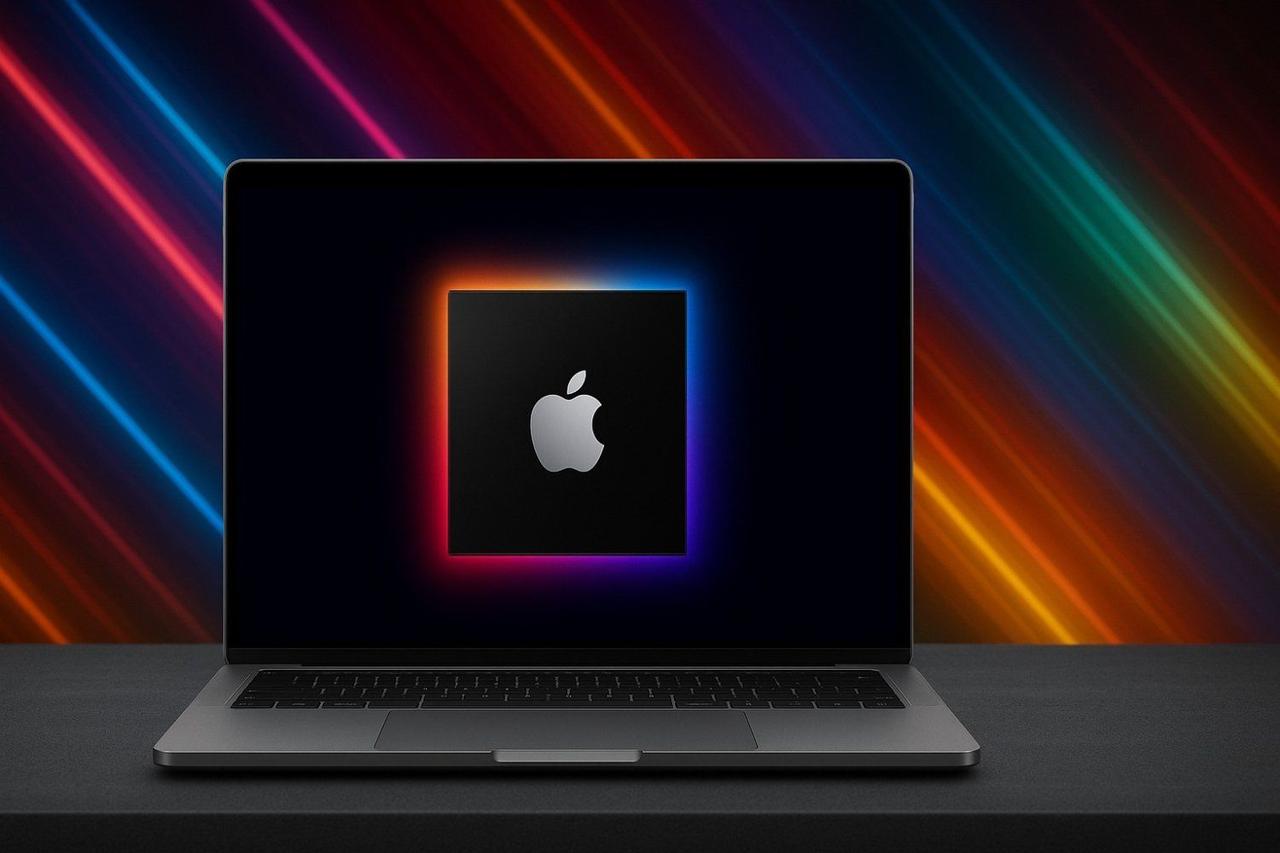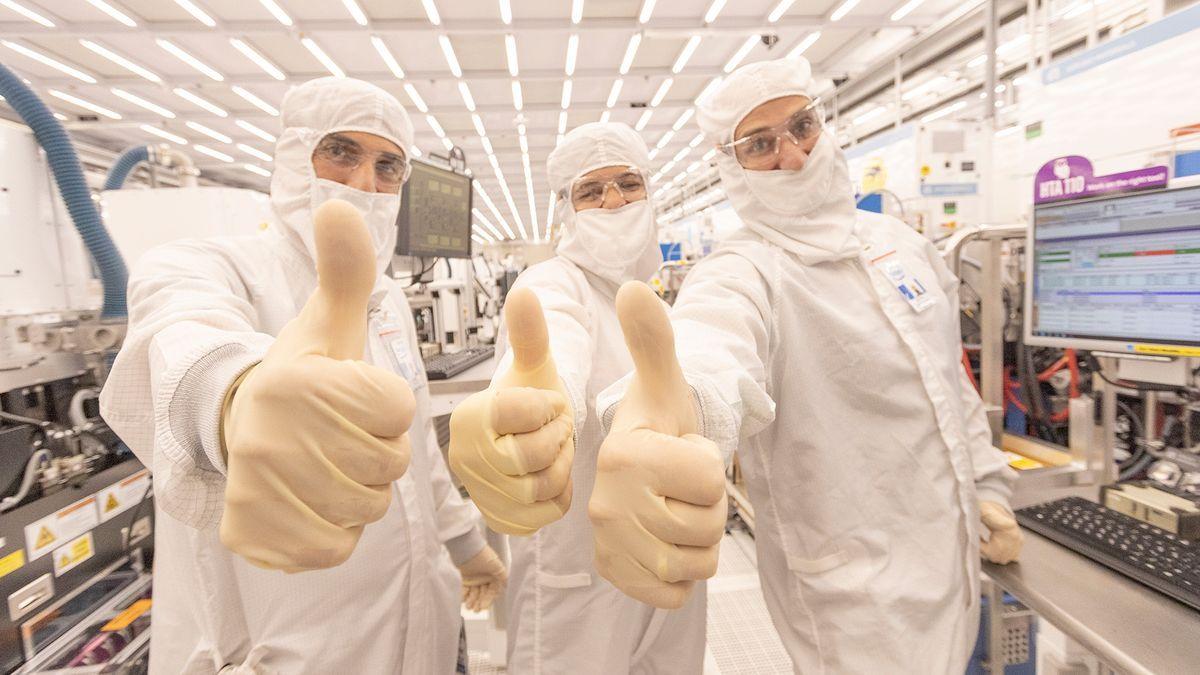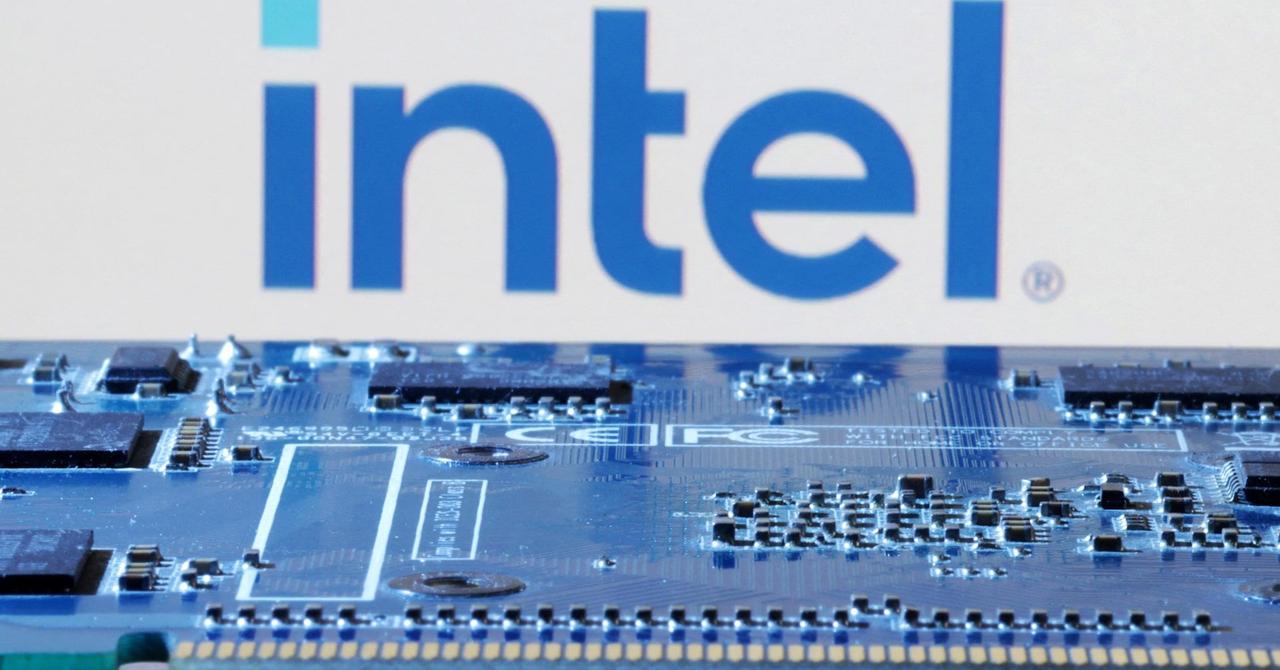Apple and NVIDIA Rumored to Consider Intel's 14A Process for Future Chips
3 Sources
3 Sources
[1]
Apple may be Intel's last hope in the foundry business - 9to5Mac
In a new research note shared this week, analyst Jeff Pu said that Apple could be among the customers considering Intel's upcoming 14A process for future M-series chips. Then, came Intel's Q2 results, and some crucial information about the future of its business. To say that Intel has been going through a years-long rough patch would be an understatement. Just today, their stock tumbled 8.5% after a weak Q2 report, the first full quarter under the helm of their new CEO, Lip-Bu Tan. Since taking over in April, Tan has been cutting and restructuring the company's multiple roadmaps (and businesses), hoping to get rid of what's been holding it back, and leaning into where it can make up for lost time and start getting out of the rut. One of those bets is the company's next-generation 14A node, which was developed largely in-house, and could be Intel's last shot at remaining in the chip manufacturing business. As reported by Reuters, after the release of its Q2 results, Tan made it clear that unless the company secures at least one major customer for 14A, it may shut down its advanced foundry efforts altogether: New CEO Lip-Bu Tan said on Thursday the company's engineers were busy working with customers to jump-start its next-generation contract manufacturing process, or foundry (...) Those customers for the company's so-called 14A manufacturing process are crucial to the success of the technology - so much so that if it fails to secure a big one, it could shut down its cutting-edge manufacturing business altogether, according to Intel's quarterly filing on Thursday. "We're developing Intel 14A ... from the ground up in close partnership with large external customers," Tan said in a memo released with the results. "Going forward, our investment in Intel 14A will be based on confirmed customer commitments. "We will build what our customers need, when they need it, and earn their trust through consistent execution." According to Pu, Intel has already started handing out early 14A process design kits (PDKs) to partners, and Apple is one of the companies showing interest: The next focus Intel 14A process will incorporate second-gen RibbonFET and PowerDirect, marking a technological evolution built upon the foundation of the PowerVia introduced in Intel's 18A. Targeting both AI and edge applications, Intel has already provided early versions of the 14A PDK to key customers, with several expressing interest in producing test chips. We anticipate NVIDIA's gaming GPU (low-end version) and Apple's M series to emerge as adopters of Intel14A. This means that Pu believes that both Apple and NVIDIA will be among the first customers to adopt 14A, possibly for lower-end gaming GPUs and future M-series chips, respectively. Apple's case is particularly interesting because the M-series chip manufacturing has been exclusive to TSMC, but having Intel as a second source (especially with U.S.-based fabs) could prove quite handy amid growing geopolitical (and trade) tensions. Do you believe Apple will go back to having Intel as a foundry partner? Let us know in the comments.
[2]
Apple rumored to consider Intel 14A process for next-gen M-series chips, NVIDIA rumored too
TL;DR: Intel Foundry's future hinges on securing major clients for its advanced Intel 14A process, featuring second-gen RibbonFET and PowerDirect technologies. Rumors suggest Apple and NVIDIA may adopt Intel 14A, challenging TSMC's dominance. Success with these partners is critical for Intel's competitiveness in AI and edge chip markets. Intel Foundry is in serious trouble if it can't find big customers to use its Intel 14A process, and, wouldn't you believe it, there are rumors flying that Apple might use Intel as its semiconductor partner for upcoming M-series processors. In a new report, GF Securities analyst Jeff Pu, who has the inside track at Apple, claims Intel is sampling early versions of Intel 14A PDK to its customers, and that both Apple and NVIDIA are interested in using Intel Foundry as a chipmaking partner. Pu said: "The next focus Intel 14A process will incorporate second-gen RibbonFET and PowerDirect, marking a technological evolution built upon the foundation of the PowerVia introduced in Intel's 18A. Targeting both AI and edge applications, Intel has already provided early versions of the 14A PDK to key customers, with several expressing interest in producing test chips. We anticipate NVIDIA's gaming GPU (low-end version) and Apple's M series to emerge as adopters of Intel 14A". I can't see Apple of all companies using Intel 14A as it has a (very) good running with TSMC, which is the leading contract semiconductor manufacturer on the planet, and this rumor seems a little too well timed. Apple using Intel 14A would be a huge deal for Intel, but the idea of a dual-sourcing semiconductor strategy does make sense. TSMC Is overloaded with customers between Apple, AMD, NVIDIA, Qualcomm, MediaTek and others, and Apple wants the best of the best when it comes to its M-series and A-series processors for its products. Intel needs to prove itself, so securing a big tech client like Apple would be a gold star for Intel Foundry. TSMC will deliver its in-house A14 process node in 2028, similar to Intel's timeframe on 14A, and Apple will want the very best of the semiconductor business. Intel has a hard job ahead of itself, as TSMC has been completely dominant over the last decade. Intel is in a state of flux, where if it doesn't secure big customers, Intel Foundry could shut its doors down for good.
[3]
Apple Is Reportedly Showing Interest in Intel's 14A Process for Future M-Series Chips; NVIDIA Could Be In-Line For Adoption As Well
After a gloomy few days for Intel, there's apparently an optimistic development being reported towards Intel's 14A process, that could involve a partnership with the Cupertino giant. The situation at Intel is uncertain right now, especially regarding the future of the foundry business. Team Blue has clearly stated that they'll abandon the race of cutting-edge nodes if they don't see high external volume with upcoming processes like 18A and 14A. However, according to the famous analyst Jeff Pu who is known for his information surrounding Apple, it is claimed that the Cupertino giant is currently sampling early versions of 14A PDK to its customers, and in that, both NVIDIA and Apple seems to be interested for now. The next focus Intel 14A process will incorporate second-gen RibbonFET and PowerDirect, marking a technological evolution built upon the foundation of the PowerVia introduced in Intel's 18A. Targeting both AI and edge applications, Intel has already provided early versions of the 14A PDK to key customers, with several expressing interest in producing test chips. We anticipate NVIDIA's gaming GPU (low-end version) and Apple's M series to emerge as adopters of Intel 14A. It is important to take this rumor with a grain of salt since things tend to change pretty quickly with Intel. Now, Apple's potential adoption of 14A could prove to be a massive breakthrough for Team Blue, considering that it could open up an entirely new frontier. The chip supply chain is entirely dominated by TSMC for now, which means that Big Tech has no other choice right now, and they will ultimately be forced to comply with the demands of the Taiwan giant, whether it includes node pricing or production capacity. This is the only narrative through which it makes sense for Apple to resort to Intel's 14A process. TSMC is expected to bring its own A14 technology to the market by 2028, similar to when Team Blue will enter with its solution. So, the Cupertino giant, who has been a key customer of TSMC, might decide to diversify its supply chain to integrate Intel's 14A process, but this would only happen if Intel comes up with a capable solution, and robust supply chain, which could take a lot more than just technical expertise. For NVIDIA, well, the company has been rumored for several months to be working with Intel Foundry, mainly because the AI hype is too big to rely on a single chip fab. However, no breakthrough has been revealed yet, so we could only wait and watch how the situation evolves.
Share
Share
Copy Link
Intel's 14A process node attracts interest from Apple and NVIDIA, potentially offering a lifeline to Intel's struggling foundry business and diversifying the chip manufacturing landscape.
Intel's 14A Process Garners Interest from Tech Giants
In a surprising turn of events, Intel's upcoming 14A process node has reportedly caught the attention of tech behemoths Apple and NVIDIA. This development could potentially breathe new life into Intel's struggling foundry business and reshape the semiconductor manufacturing landscape
1
2
3
.
Source: 9to5Mac
Intel's Last Stand in Advanced Chip Manufacturing
Intel's new CEO, Lip-Bu Tan, has made it clear that the company's future in advanced chip manufacturing hinges on securing major customers for its 14A process. In a recent statement, Tan emphasized, "We're developing Intel 14A ... from the ground up in close partnership with large external customers"
1
. The company's quarterly filing revealed that failure to secure significant customers could lead to the shutdown of its cutting-edge manufacturing business1
.Apple's Potential Shift and Strategic Implications
According to analyst Jeff Pu, Apple is among the companies showing interest in Intel's 14A process for future M-series chips
1
2
. This potential move is particularly intriguing as Apple has exclusively relied on TSMC for its M-series chip manufacturing. Adopting Intel as a second source could prove strategically valuable for Apple, especially considering the growing geopolitical tensions and the advantage of U.S.-based fabs1
.
Source: TweakTown
NVIDIA's Rumored Interest and Market Dynamics
Alongside Apple, NVIDIA is also rumored to be considering Intel's 14A process, potentially for lower-end gaming GPUs
2
3
. This interest from two major players in the tech industry could significantly impact the current chip manufacturing monopoly held by TSMC.Related Stories
Technical Advancements and Competition
Intel's 14A process incorporates second-generation RibbonFET and PowerDirect technologies, building upon the PowerVia introduced in Intel's 18A
2
. These advancements target both AI and edge applications, positioning Intel to compete in crucial emerging markets2
3
.
Source: Wccftech
Industry Implications and Future Outlook
The potential adoption of Intel's 14A process by Apple and NVIDIA could mark a significant shift in the semiconductor industry. It offers an opportunity for diversification in the chip supply chain, which is currently dominated by TSMC
3
. However, Intel faces substantial challenges, including proving its technological capabilities and establishing a robust supply chain to compete effectively with TSMC's established dominance3
.As the situation continues to evolve, the tech industry watches closely. The success of Intel's 14A process could redefine the competitive landscape in chip manufacturing and influence the future of AI and edge computing technologies.
References
Summarized by
Navi
[2]
Related Stories
Intel Considers Abandoning 18A Chip Process, Shifting Focus to 14A in Bid to Win Major Customers
03 Jul 2025•Business and Economy

Nvidia considers Intel Foundry for Feynman AI chips as TSMC capacity constraints bite
28 Jan 2026•Technology

Intel's Foundry Future Hangs in the Balance: Next-Gen Chipmaking Tech Needs Customer Commitment
25 Jul 2025•Business and Economy

Recent Highlights
1
Google Gemini 3.1 Pro doubles reasoning score, beats rivals in key AI benchmarks
Technology

2
ByteDance's Seedance 2.0 AI video generator triggers copyright infringement battle with Hollywood
Policy and Regulation

3
ChatGPT cracks decades-old gluon amplitude puzzle, marking AI's first major theoretical physics win
Science and Research





